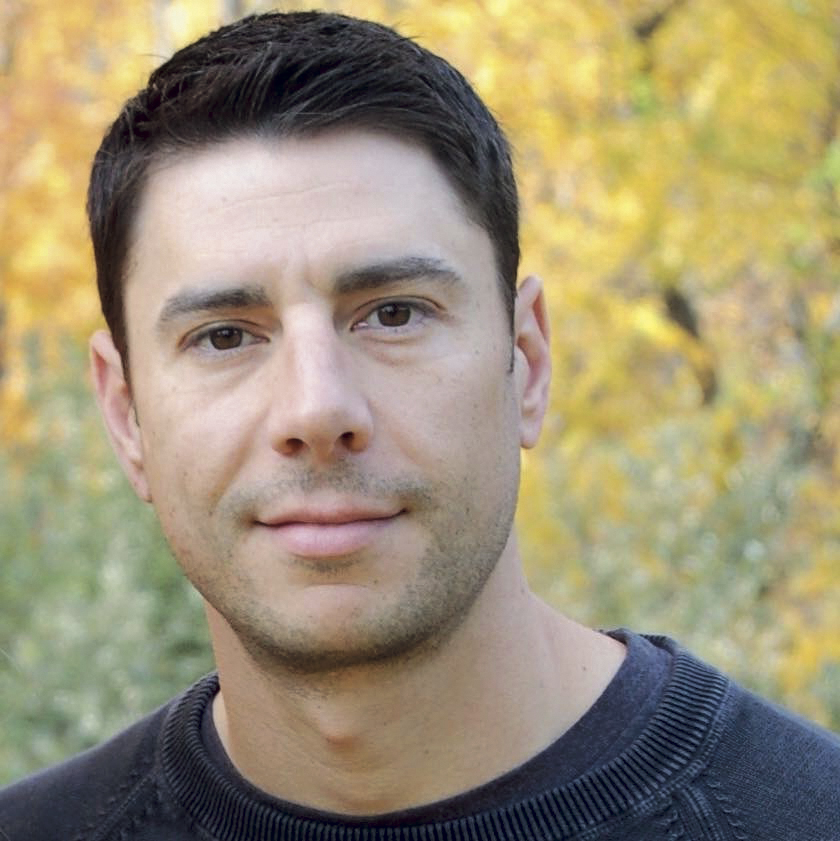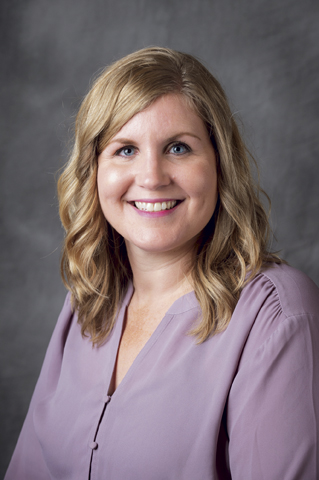PROFESSIONAL DEVELOPMENT
A PROGRAM FOR PROGRAM PROS
Interest in Certified Programs Leader designation continues to expand
By Dave Willis, CPIA
Since early in this decade, more than 130 program administration professionals have put in the time and effort required to earn the Certified Programs Leader (CPL) professional designation. The designation is offered by the Target Markets Program Administrators Association (TMPAA) and courses are delivered by Target University. Target University and the CPL program exist to further promote best practices in program administration, enhance the status of program business in the insurance industry, and recognize the specialized skill sets of program professionals.

-Greg Thompson, CPCU, ARM, CPL
Dean
Target University
“Program administrators occupy a specialist niche within the industry,” explains Greg Thompson, CPCU, ARM, CPL, past board president and current emeritus board member of TMPAA and dean of Target University. But paths to that niche vary. “Frequently, someone becomes a program administrator based on expertise they develop, perhaps while working for an insurance company or a retail agency or any of a number of ways, and they wake up one day and say, ‘Hey, I want to start a business focused on this industry.’ Often, they are insurance experts, and they are experts in an industry, but they aren’t always experts in the various aspects of running a program administration business.”
This realization led to the development of the CPL designation. “It occurred to us that, as part of the association of program administrators, one of the things we needed to accomplish was to provide education specific to program administration—all of the basic tools a program administrator would need in order to be successful,” Thompson explains.
“It was important to create a comprehensive offering because so many of us come into the program arena from an area of specialization, be it insurance or an industry or both,” he adds. “But that background doesn’t necessarily prepare us for understanding all aspects of running a business. So, we offer 12 courses that cover everything from actuarial to underwriting, marketing to operations and software, and program administrator contracts, which are very different than the standard retail agency contract.”
In addition to successful completion of the Target University courses, CPL candidates must possess:
- At least five years of experience in the insurance industry
- A minimum of two years of experience in a program leadership role (manager, supervisor, officer) or five years as a program underwriter or five years as a vendor in a technical position directly serving the program business industry
- An absence of any ethical violations
- Membership in the Target Markets Professional Administrators Association
- Two endorsements

-Daren D’Ippolito, CPL, MA
President
Provident Insurance Programs
Signing on
Among the 130-plus Certified Programs Leaders minted by Target University is Daren D’Ippolito, CPL, MA, president of Provident Insurance Programs, a program administrator based in Pittsburgh. D’Ippolito, who earned his Certified Programs Leader professional designation in 2017, has been with Provident for 14 years. He served as regional director and then assistant vice president of business development and sales before taking on his current role.
“The CPL designation was attractive for me because of the core content it provides,” D’Ippolito explains. “The material is practically and directly relevant to what we do as a program administrator. Very few insurance industry designations have such a tangible application to our business as the CPL does.”
Sarah McDonnell, CPL, director of the Non Profit Insurance Program for Ephrata, Washington-based Clear Risk Solutions, has been at her firm for the last 10 years or so. “I’ve worked with nonprofits since I started at Clear Risk,” she explains. “I had underwriting experience and also the outside perspective of working with nonprofits over the years. I like that what we’re doing to support nonprofits makes a difference in people’s lives.”
A coworker recommended the CPL program to her. “I’m a glutton for punishment,” McDonnell says with a chuckle. “I love education, so I am always trying to take on more. I was interested in this because it provides outside perspective and lets me see what others are doing to make their passions work.” She earned her designation in 2018.

Brett Biskup, CIC, CPL
Business Development Manager-US Insurance
Sompo International Insurance
Brett Biskup, CIC, CPL, Dallas-based business development manager-US Insurance for Sompo International Insurance, grew up in insurance; her dad was a retail agent. “Most of my career has been in the MGA sector, where I was in charge of developing and handling programs along with underwriting duties,” she explains. Her Sompo roles include program relationship manger, where she found, vetted and put together programs, and then maintained program relationships—a task she now handles for all U.S. Sompo business units.
“Being at the top of your game in insurance requires constant learning,” the 2018 designee asserts. “I’d been out of programs for a couple of years when Sompo renewed its focus on the segment. Target Markets was offering education I could share with colleagues and use to improve our business processes, and I could do it on my own time, in the comfort of my home or hotel room. It was a win-win for me and my organization.”
Benefits and value
In addition to the whenever, wherever feature, Biskup appreciated the courses’ affordability and flexibility. “Whether you want to do several lessons a day or an hour or two during lunch, the accessibility was there,” she explains.
Completing the courses, she notes, built greater knowledge of and respect for those involved in the program process. “Being at a carrier, you sometimes lose sight of the work involved in gathering, manipulating and reporting the data needed to properly vet and see the entire picture of a prospective program,” she explains.
“I not only gained a healthy perspective on the work, I also came away with information that I can share with my peers and those I mentor,” Biskup adds. “Education is a good thing and I believe the CPL program provides a solid foundation for those looking to enter the space and those who might want a little brush-up on knowledge they already have.”
D’Ippolito appreciated the content layout. “It was very consistent and logically applied for each course,” he notes, “and each lesson had insightful points presented through the lens of program administration.
“The Certified Programs Leader courses provided useful best-practice recommendations for every aspect of our business,” he explains. “In some cases, these reinforced what we already are doing. In other situations, I came away with good ideas and insight we can integrate into our operation as we continue to grow our business.”
“I liked that the program featured different presenters who brought different perspectives,” McDonnell explains. “That was really helpful for me, because we do some things a little differently than others. We do risk pooling in Washington and also do program management. I was able to see what other people are doing and also apply what I learned to our unique risk transfer approaches.”
The education, she adds, “has helped with existing program work and new initiatives we’re working on internally and across our Brown & Brown family. It helped me know what I don’t know and where to get answers to make sure our clients are getting the best value. It helped me gain different perspectives and provided me some new opportunities, as well.”
McDonnell warns that the program is “pretty fast paced. There’s not a lot of toggling back and forth. They want to make sure you’re paying attention and that you’re really engaged.”

-Sarah McDonnell
Director of Non Profit Insurance Program
Clear Risk Solutions
Going forward
“We’ve just gone through the process of updating all of the courses,” Thompson explains. “Aspects of some of them were out of date. For example, we did a relatively significant overhaul on the technology content because of how much has changed in recent years. Other courses, like contracts, had some updates but they were more limited.
“Basically, we went through each course with a fine-tooth comb to make sure the content is appropriate and relevant and still getting the job done for program administrators,” he adds. Courses also have been moved to a new platform that will allow people to access them on devices like iPads and phones.
“There’s no reason somebody who can set aside a certain amount of time over an extended period can’t do it,” Thompson says. “I’m hoping that expanding the platform and making it so you don’t have to be on a computer to get it done, but can instead use mobile devices, will expand the number of people who pursue a designation.”
He points out that interest extends well beyond the program administrator population. “We’ve found we’re also getting a lot of traction with program managers working in the carrier operations,” he explains. “I can see us easily doubling the number of CPLs within the next couple of years.”
He’s starting to see increased interest among retail agents. “I do a fair amount of consulting in the program administration space, and two of my clients are retail agents who want to become program administrators,” he explains. “I expect them to take the CPL courses as part of their transition.”
More and more retail agents are leveraging niche expertise and building profitable programs. “I see retail agencies becoming a greater source of program administrators and CPL designees going forward,” Thompson adds.
Where he sees somewhat less activity than expected is from the corner office. “We’ve been somewhat challenged engaging the people who, in some sense, need it most—the actual owner in the program industry,” he explains. “We haven’t seen anywhere near as many of those take part as I think we should have.”
Having served for a long time in that role, he acknowledges how overwhelming it can be. “As an entrepreneur, you are hands-on and constantly busy building and running a business,” Thompson notes, “and it’s hard to make time for learning. We are starting to see a slight increase in involvement at the owner and principal level, but more frequently, it’s the next level down—middle management or the person who heads a specific niche—that’s taking part.”
Time may shift the numbers. “A lot of our designees are on track to become principals and owners,” he explains. “By getting the designation, they demonstrate their commitment to the business, their desire to succeed, and their readiness to advance. The nature of the beast is that these people rise to the top, and we’ll see the number of CPLs in the owner and principal ranks grow through promotion.”
Parting advice
Professionals who have earned the designation are quick to encourage others to get involved. “I would strongly recommend anyone from the distribution end of program administration to pursue the CPL,” D’Ippolito says. “Like other companies, we have additional colleagues who are pursuing or plan to pursue the CPL designation.”
“The courses are truly worth the time and effort,” Biskup adds. “I would encourage people to really pay attention to all the fine details the courses explore and use what they learn to improve their own processes.”
McDonnell adds, “The program does a great job of helping you understand the business and how all the pieces of the puzzle fit together. It’s definitely worth the time and focus. Sometimes the material is challenging and covers things you might have never encountered—in my case it was IT and integration. Be persistent. Learn what others in your company deal with.
“Broadening my perspective by earning the CPL designation has been a really big help as I look to build my career,” she explains.
For more information:
Target University
www.targetmkts.com/services/target-university







